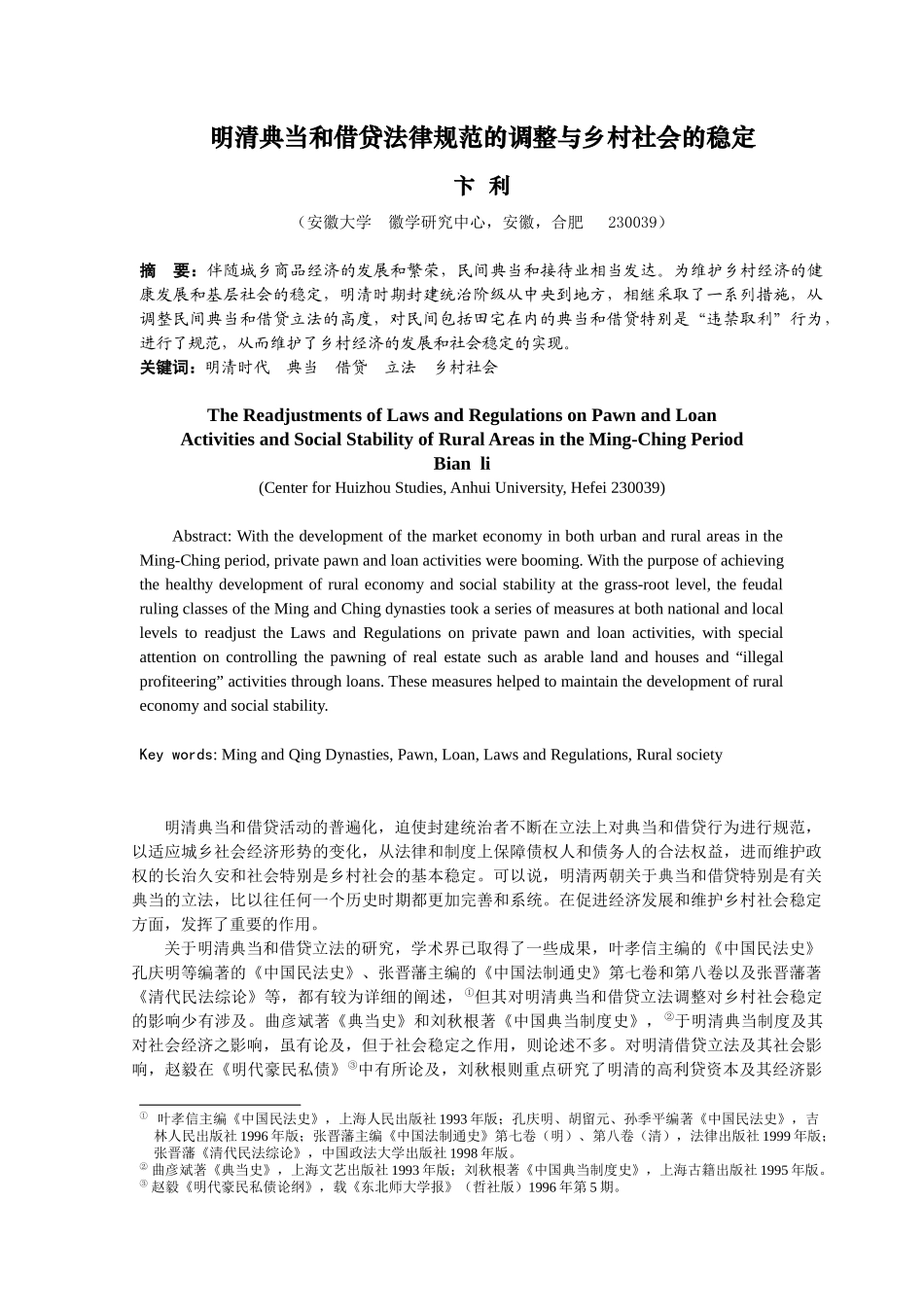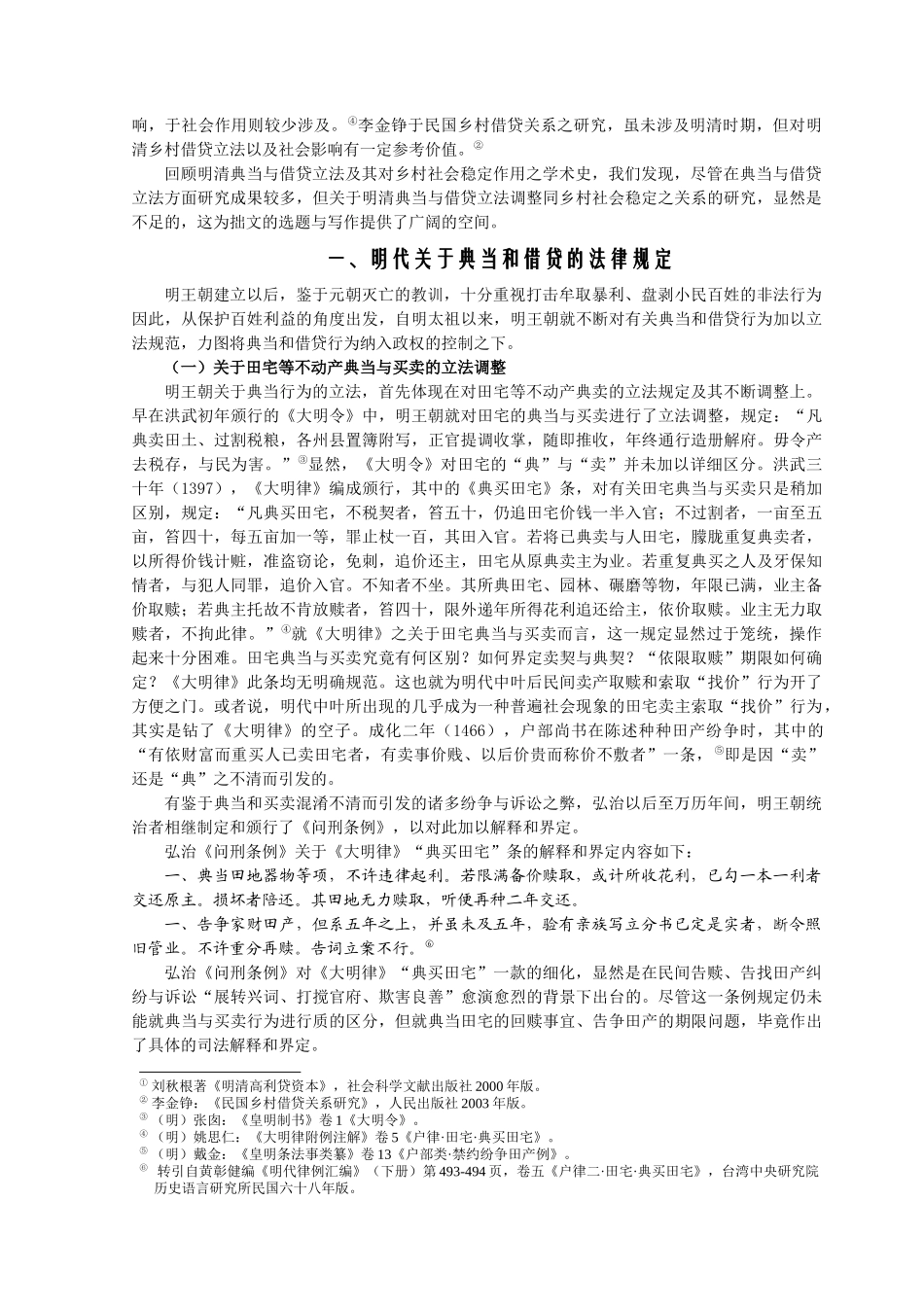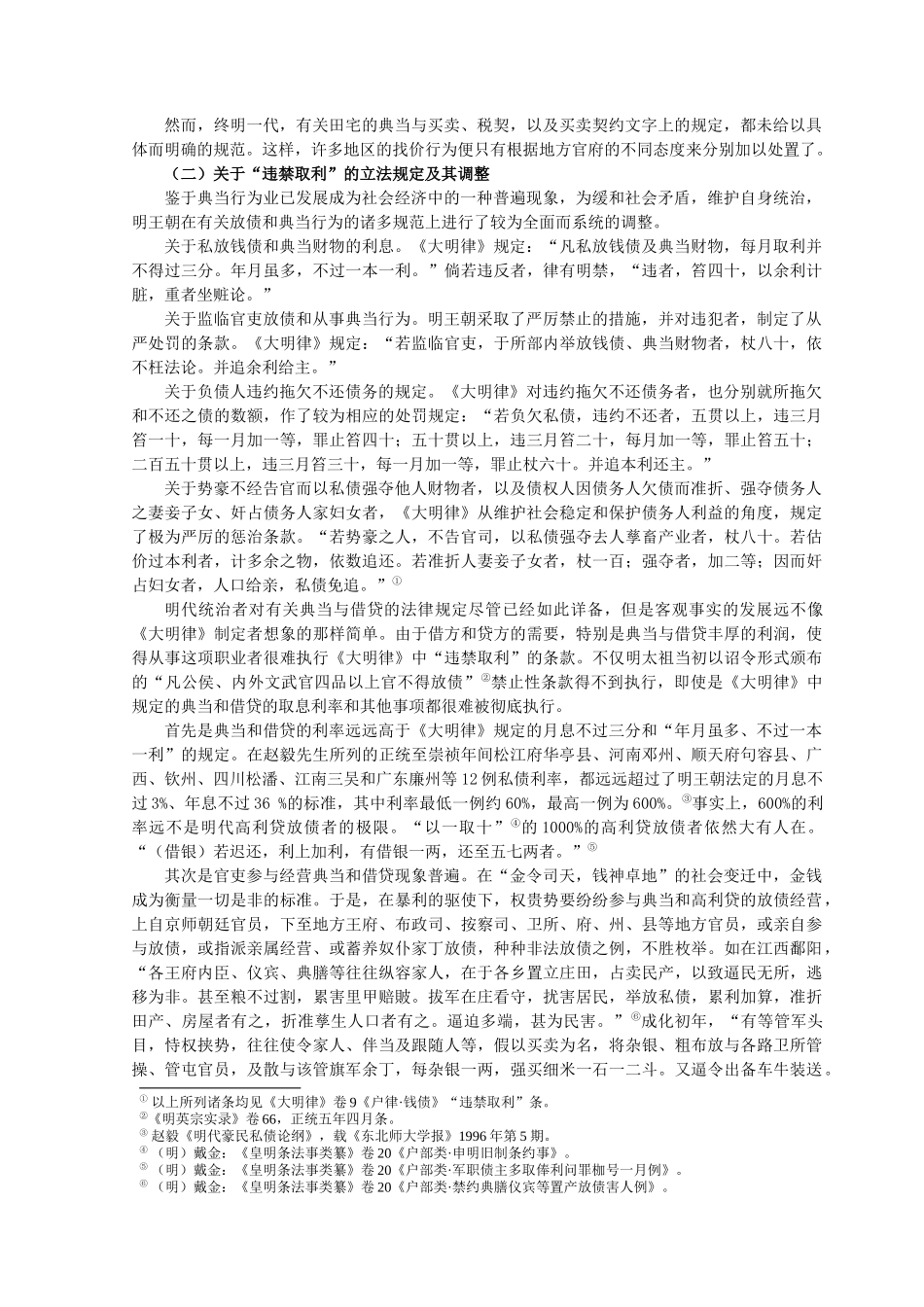明清典当和借贷法律规范的调整与乡村社会的稳定卞 利(安徽大学 徽学研究中心,安徽,合肥 230039)摘 要:伴随城乡商品经济的发展和繁荣,民间典当和接待业相当发达。为维护乡村经济的健康发展和基层社会的稳定,明清时期封建统治阶级从中央到地方,相继采取了一系列措施,从调整民间典当和借贷立法的高度,对民间包括田宅在内的典当和借贷特别是“违禁取利”行为,进行了规范,从而维护了乡村经济的发展和社会稳定的实现。关键词:明清时代 典当 借贷 立法 乡村社会 The Readjustments of Laws and Regulations on Pawn and Loan Activities and Social Stability of Rural Areas in the Ming-Ching PeriodBian li (Center for Huizhou Studies, Anhui University, Hefei 230039)Abstract: With the development of the market economy in both urban and rural areas in the Ming-Ching period, private pawn and loan activities were booming. With the purpose of achieving the healthy development of rural economy and social stability at the grass-root level, the feudal ruling classes of the Ming and Ching dynasties took a series of measures at both national and local levels to readjust the Laws and Regulations on private pawn and loan activities, with special attention on controlling the pawning of real estate such as arable land and houses and “illegal profiteering” activities through loans. These measures helped to maintain the development of rural economy and social stability.Key words: Ming and Qing Dynasties, Pawn, Loan, Laws and Regulations, Rural society 明清典当和借贷活动的普遍化,迫使封建统治者不断在立法上对典当和借贷行为进行规范,以适应城乡社会经济形势的变化,从法律和制度上保障债权人和债务人的合法权益,进而维护政权的长治久安和社会特别是乡村社会的基本稳定。可以说,明清两朝关于典当和借贷特别是有关典当的立法,比以往任何一个历史时期都更加完善和系统。在促进经济发展和维护乡村社会稳定方面,发挥了重要的作用。关于明清典当和借贷立法的研究,学术界已取得了一些成果,叶孝...


